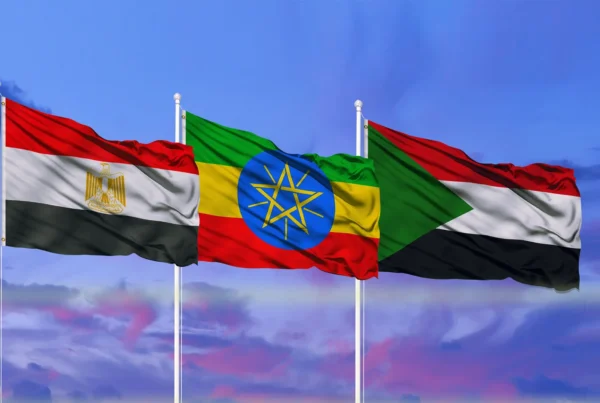After the Biden administration’s disastrous withdrawal from Afghanistan in August 2021, the Taliban eliminated most women’s rights in Afghanistan. Why is the international community failing to respond adequately? Where is the outcry of solidarity? Why have economic sanctions not been imposed against the Taliban regime?
Meric Sentuna Kalaycioglu
24 April 2023
Arabic version | Chinese version | German version | Russian version
Afghanistan has been governed by the Taliban since August 2021, with disastrous repercussions on Afghanistan’s women and girls.
Following the signing in February 2020 of the “Agreement for Bringing Peace to Afghanistan” (also known as US-Taliban Deal) the longest war in US history came to an end. One of the provisions of the agreement urged the withdrawal of all American and NATO troops from Afghanistan.
The disastrous withdrawal from Afghanistan was orchestrated by the Biden administration in August 2021. The terrorist attack on 26 August 2021 at Hamid Karzai International Airport left 13 US service personnel and 170 Afghan civilians dead and many hundreds wounded. US citizens and Afghans working for the US government were left behind as well as military equipment worth over USD 7 billion according to the Pentagon.
As the Washington Post put it, this was not Biden’s “finest hour”. The 12-page “disappointing” White House report, issued before Easter, unconvincingly shifts blame to the previous administration while ignoring President Biden’s tactical decision to go ahead with the withdrawal. The WH report did not convince the American public nor the international community of Biden’s innocence in what has become one of the US’s greatest foreign policy blunders.
After the US hasty withdrawal, the Taliban filled the power vacuum left behind. One of their first tasks was taking away women’s rights including the right to education.
Girls above the age of 12 (sixth grade) have been stripped of their right to secular education and can only attend Islamic schools, the madrassa, where they are only taught to read the Koran in Arabic, which is not their native language. Female students have been suspended from public and private universities owing, according to the Ministry of Higher Education, to the “lack of a suitable environment for them”.
Not only have the dreams of 2.5 million school-aged girls been shattered, but also the professional prospects of adult women are non-existent, as their right to work in public offices, the judiciary, non-governmental organizations and non-religious schools has been abolished. Since the Taliban assumed power, employment for women fell by 25%, compared to only a 7% decline in male employment, according to the International Labor Organization (ILO).
The agonizing restrictions placed by the de facto authority, the Taliban, on the everyday life of Afghan women has severely slashed their social life, ‘compelling’ many to stay at home. Since November 2022, women have been prohibited from going to parks, amusement parks, gyms and public baths. Erasure of women’s visibility has also been brought about by mandating the wearing of the burqa, a head-to-toe covering, at all times when in public. Women have been deprived of their right to travel for more than 45 miles (72 kilometers) without a male companion. The Ministry for the Propagation of Virtue and the Prevention of Vice published guidance instructing vehicle owners to refuse a ride to women not wearing a burqa or unaccompanied by a close male family member.
While the lives of urban women are severely curtailed by these restrictions, the lifestyle of rural women is less dramatically affected. The women in the countryside are surrounded by close relatives, and usually work in agriculture and animal husbandry, two of the very few sectors from which the female workforce have not been banned. Nevertheless, rural female students are still denied the right to attend secondary school and the right to travel from their villages without “proper” coverings and male family members.
All these restrictions damage the very existence and quality of life of women and young girls. The combination of economic hardships arising from income loss and job insecurity, their exclusion from social life, deprivation of education, and forced marriages driven by economic and social pressures have led to a much higher prevalence of mental health issues among women.
The political atmosphere, security issues, and the reluctance of people to share personal information make it hard to conduct comprehensive mental health studies in Afghanistan. Therefore, only a handful of mental health surveys are available. A survey published in Biomedcentral Psychiatry (A national survey on depressive and anxiety disorders in Afghanistan: A highly traumatized population) in 2021 found that 47% of Afghan women interviewed had been suffering from psychological impairments, including Post Traumatic Stress Disorder (PTSD), Major Depressive Episode (MDE), Generalized Anxiety Disorder (GAD) and the risk of suicide, at rates higher than those reported by Afghan men.
The message of the international community is clear – stop the “war against women”. UNESCO Director-General Audrey Azoulay conveyed this message on 24 January 2023 in New York at the United Nations (UN) headquarters on the occasion of the International Day of Education. However, concrete steps to restore women’s liberties and their fundamental right to education are lacking. The UN, the European Union, along with the Muslim World League and the Organization of Islamic Cooperation, have collectively called on the Taliban to lift restrictions imposed on women. However, without any meaningful economic sanctions by the international community, the Taliban remain unimpressed by this lip service to women’s rights. Moreover, Kabul considers the restrictions on women’s rights as part of their domestic politics and therefore asks the international community not to meddle in the internal affairs of Afghanistan.
While economic sanctions against the Taliban regime would impact the entire civilian population in Afghanistan, their absence has left Afghan women and girls alone to deal with the aftermath of US withdrawal. Some argue that initiating various financial punishments such as cutting development aid and humanitarian assistance programs and stopping international donor activities would only exacerbate the appalling living conditions of regular Afghans including women. However, doing nothing cannot be the correct response of the international community. It only emboldens the Taliban to continue to eliminate women’s rights.
The world, especially the West, is at a critical juncture. A new approach to help women in Afghanistan is needed. But it might prove too little too late, as the Taliban continue to eradicate 20 years of achievements of Afghan women. The future of Afghan girls and women looks bleak.
Thank you America!







